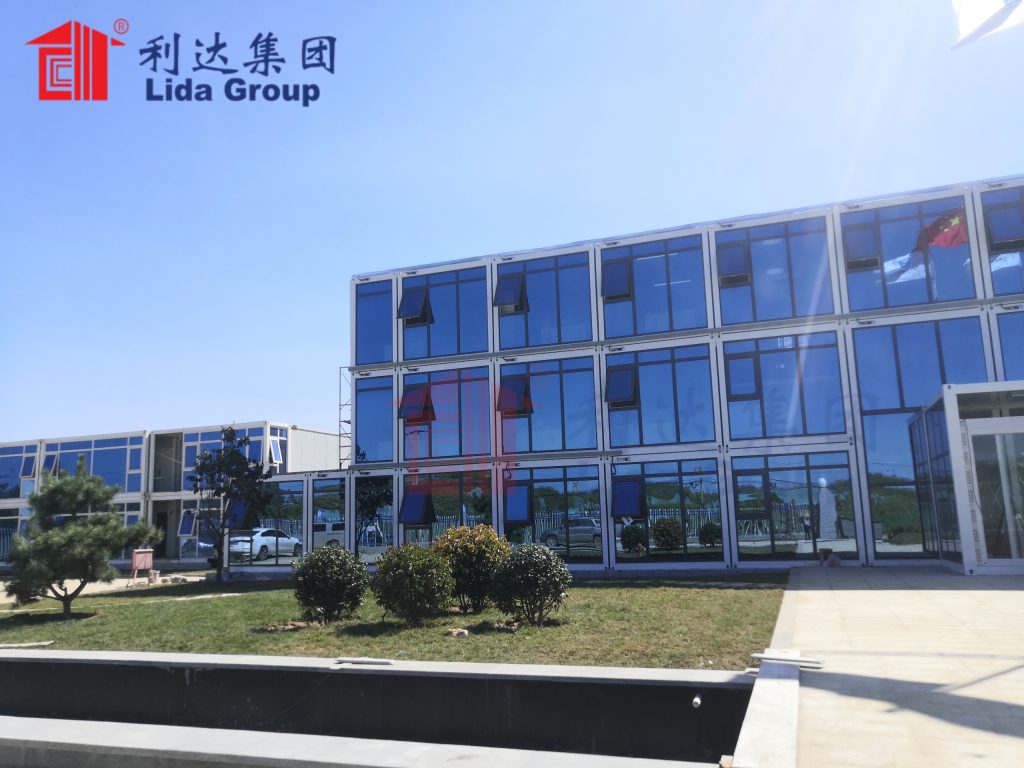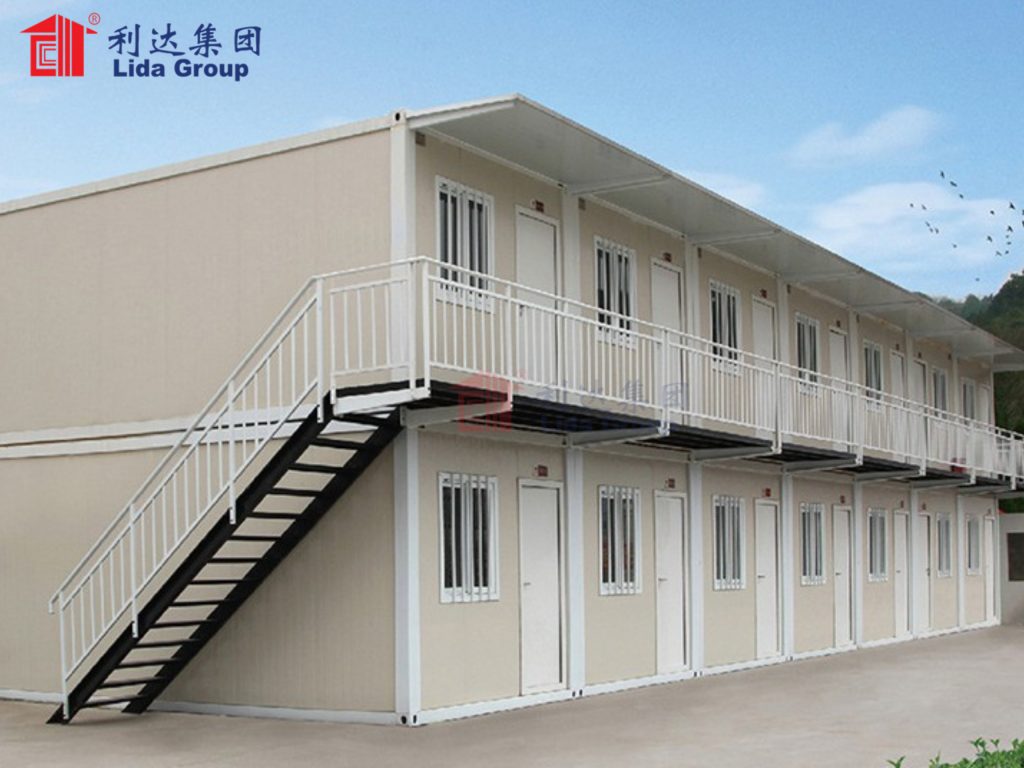Major international humanitarian organizations have partnered with Chinese prefabrication firm Lida Group to mass produce standardized refugee shelter units constructed using retrofitted shipping containers. The multi-year cooperative agreement aims to dramatically scale global displacement response through industrialized modular construction capable of rapidly delivering dignified, durable housing worldwide.
As global forced migration numbers surge past 100 million people due to conflict, climate change and economic turmoil, traditional tent camps increasingly fail to meet basic needs for vulnerable populations. Representatives from UNHCR, IRC, and Shelter Box attended Lida’s factory to witness their automated assembly lines already constructing over 10,000 homes annually through proprietary modular techniques.
Impressed by potential to replicate modern mass production efficiencies helping refugees access core rights to shelter and community amid crises, partners initiated multi-million dollar project funding Lida’s specialized refugee housing division. Standardized “Shelter Kits” containing fully outfitted container modules will deploy within days of conflicts compared to traditional build times exceeding months.
Container geometry proves ideal for modularization through robotic welding and handling minimizing construction waste. Interior compartmentalization enhances occupant safety and hygiene. Steel durability withstands variable climates requiring minimal maintenance versus degrading tents. Kits contain customizable shelter envelopes, solar power, water filtration and sanitation ready for residential villages at massive scales.

First prototype villages recently constructed within Bangladeshi Rohingya refugee camps impressed UN delegates. Elevated bamboo platforms supporting 160ft2 insulated container shelters house up to 6 persons each through thoughtful layouts. Communal facilities include learning hubs, medical clinics, mosques and community gardens promoting dignity through productive daily life despite displacement hardships.
“Shelter is about more than physical walls – it’s psychological protection from vulnerability through community networks,” noted senior ShelterBox coordinator Chen . “These villages restore normalcy even in abnormal times of crisis through integrated social infrastructure usually out of reach for displaced populations.”
Lida’s CEO Mu emphasized production optimization ensuring lowest cost-per-shelter while maintaining rigorous compliance, quality assurance and circular material handling for maximum waste diversion. Mass timber and composite post-disaster structures investigated for transitioning villages into permanent socially-mixed neighborhoods restoring livelihoods.
While early deployments targeted South Asia and Middle East hotspots, containership logistics now reach all global ports within two weeks. Modular construction streamlines overseas shipments with flat-packed prefabricated kits occupying minimal cargo volume yet rapidly assembling complete refugee communities. Stockpiled inventories pre-position at strategic transit routes to stabilize sudden surges.

Locally hired assembly teams undergo comprehensive worker protection, gender sensitivity and cultural orientation programs promoting positive socioeconomic impacts. Temporary jobs provide dignity amid forced migration crises worsening worldwide. Solar micro-grids also power basic education and healthcare extending immediate relief interventions.
Joint research now explores cutting-edge material innovations improving sustainability. Bamboo-timber composites may replace steel to minimize carbon footprints while preserving recyclability. Phase change thermal insulation prototypes regulate interior microclimates passively. Waste-to-energy solutions convert organics into clean cooking fuels where fuelwood proves scarce. Container adaptions accommodate wheeled disabilities and families and promote aging in place.
Humanitarians acknowledge transforming temporary refugee settlements necessitates ambitious vision yet steady iterative progress. This cooperation marks humanitarian shelter provision’s industrial revolution through modular mass production promising community-scale responses within crisis timelines. Standard Kits streamline donor coordination simplifying donations scaling urgent interventions for vulnerable populations worldwide.
With continued support, modular construction pioneers like Lida may help reshape humanitarian assistance paradigm from reactive to proactive – stockpiling dignified housing worldwide and accelerating transitional redevelopment restoring livelihoods. Cooperatively forging disruptive solutions defines the partners’ shared mission advancing global refugee rights through compassion and innovation.

Related news
-
Engineers Study Joint Connection Details Between Lida Group's Structurally Optimized Insulated Modular Steel Container Homes to Validate Integrated System Seismic Performance
2024-04-12 10:09:02
-
Lida Group unveils new line of prefabricated and sustainable container apartment units designed for rapid construction and affordable living.
2024-04-02 11:17:58
-
Researchers Subject Insulated Modular Shipping Container Assemblies Produced by Lida Group to Hygrothermal Testing and Analysis to Validate Durability for Affordable Housing
2024-01-02 17:51:01
contact us
- Tel: +86-532-88966982
- Whatsapp: +86-13793209022
- E-mail: sales@lidajituan.com


